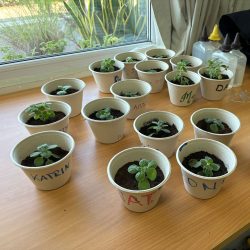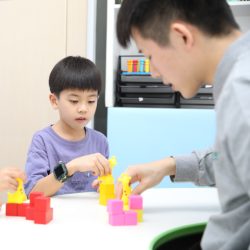In today’s digital world, children spend increasing amounts of time online, whether for school, socialising, or entertainment. While the internet brings many opportunities, it also exposes children to risks such as cyberbullying. As a parent, noticing changes in your child’s mood, behaviour, or social engagement can be worrying. Understanding how to respond effectively can help protect your child, preserve their well-being, and empower them to navigate online spaces safely.
Actionable Steps for Parents:
- Document the Evidence: Keep a record of any abusive messages, screenshots, or social media posts. This documentation may be needed if you report the behaviour to the platform, school, or authorities.
- Begin With Calm Support: When you open the conversation, start by reassuring your child that you want to help and support them, and that their safety and feelings matter most. Avoid jumping to solutions, blame, or anger so your child feels safe sharing.
- Choose the Right Moment: Try to find a relaxed, non-threatening time and place for your talk — such as during a walk or quiet evening — so your child does not feel pressured or rushed.
- Let Your Child Lead the Discussion: Allow your child to describe what happened, how they feel, and what they would like to see happen. Listen actively and avoid interrupting or minimising their feelings.
- Avoid Minimising or Reactive Responses: Do not downplay your child’s distress or criticise them for how they reacted. Affirm that seeking help is the right thing to do, and remind them it is not their fault that bullying occurred.
- Understand the Platforms: Familiarise yourself with the apps and websites your child uses. Knowing how privacy settings, blocking, and reporting features work can help you guide your child in protecting themselves online.
- Encourage Healthy Boundaries: Discuss safe online habits, including setting limits on screen time, choosing supportive online communities, and knowing when to step away from stressful interactions.
- Maintain Open Communication with Your Child’s School: Cyberbullying often happens outside of school hours, but its effects are felt in the classroom. Keeping teachers and school staff informed ensures that your child receives consistent support. Share what your child has told you, provide screenshots or evidence if available, and discuss what has already been tried at home. Ask how the school can help monitor the situation and what pastoral or safeguarding measures are in place. For guidance on communicating more effectively with teachers, you may find this helpful: How to Build Better Communication with Teachers: A Parent’s Guide.
- Provide Emotional Support: Encourage activities that build resilience, self-esteem, and confidence. Validate your child’s feelings and reinforce that they are not at fault. If needed, consider professional support such as a child psychologist or counsellor.

Cyberbullying can be challenging to navigate, but your support has real impact. When children feel heard, believed and guided with calm reassurance, they are better able to process difficult online experiences and regain confidence. By staying attentive to their emotional wellbeing, communicating openly, and taking thoughtful steps when intervention is needed, you help your child feel protected and empowered.
This article draws on guidance from UNICEF’s How to talk to your child about cyberbullying and insights from Harvard Health Publishing’s Supporting a bullied child.
Health and Wellness Products / Services That May Be of Interest:
Get a special discount by quoting code AISLMALL during CHECKOUT.
black+blum – WaterBottle/Mug & Accessories

black+blum – Water Bottle/Mug & Accessories: Sustainable thinking is incorporated into all of their products, designing with longevity in mind and using environmentally friendly materials. Reduce plastic pollution, food waste, packaging waste.
iLiving: Initial 90-minute Consultation with Supported Healing for Children

iLiving consultation includes health scan of a child who is suffering from chronic physical or mental health challenge and coaching to their caretaker/parent(s).
KFBG Wellness and Sustainability

By utilizing the unique natural landscapes and cultural atmosphere of the Kadoorie Farm and Botanic Garden. Half-day to full-day nature education and art activities can be designed for the school staff, parents and children. The activities may include guided tours, farm-to-table experiences, and various nature-related workshops, lectures, and art activities, allowing the organization to understand and practice sustainable living.
Llegend – Diploma in Professional Aromatherapy

Llegend’s aromatherapy course covers essential oils, anatomy, and therapeutic applications, combining theory and practice. Accredited by the IFA, it offers exemptions for the UK TQUK Level 4 Certificate. As Hong Kong’s leading college for aromatherapy, it boasts 7 international accreditations.
Therapy Services – 1 on 1 Offline Therapy Service (Speech Language-Pathology/ Occupational Therapy)

Allied Health School Services certified speech-language pathologists and occupational therapists offer personalized therapy for speech, language, motor skills, emotional regulation, and self-care. We use evidence-based practices to support students’ academic and social growth, boosting confidence and promoting inclusive learning environments.
Wellbeing Books Series

Dr. Willard’s books blend mindfulness with practical approaches for families. *Alphabreaths* teaches kids mindfulness through ABC-themed breathing exercises, while *Growing Up Mindful* offers parents and educators tools to help children build resilience, self-awareness, and empathy through mindfulness.










